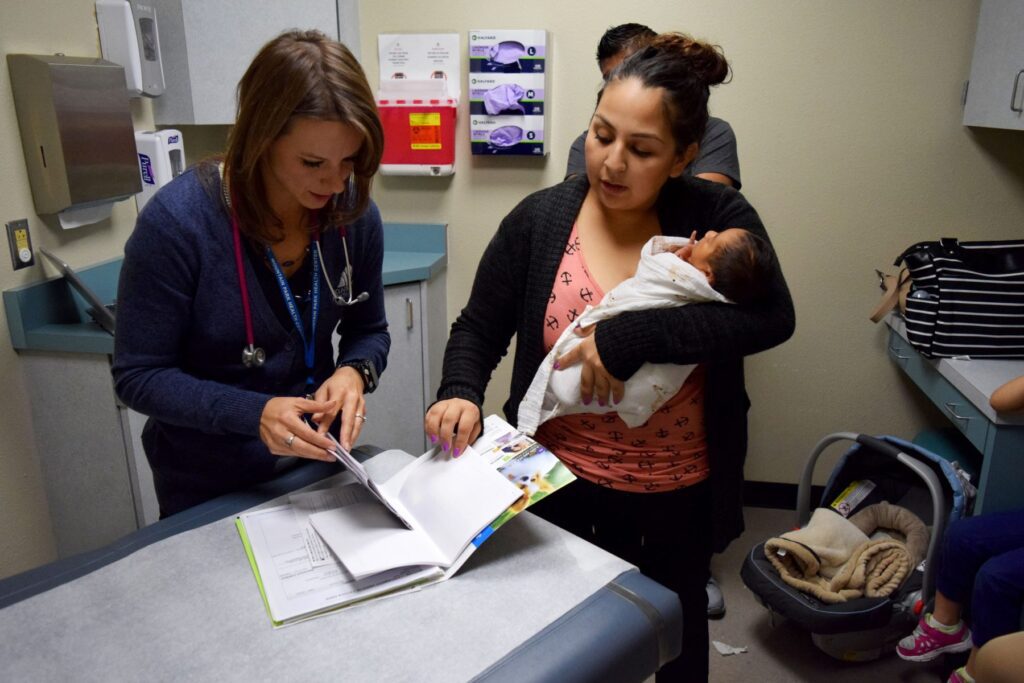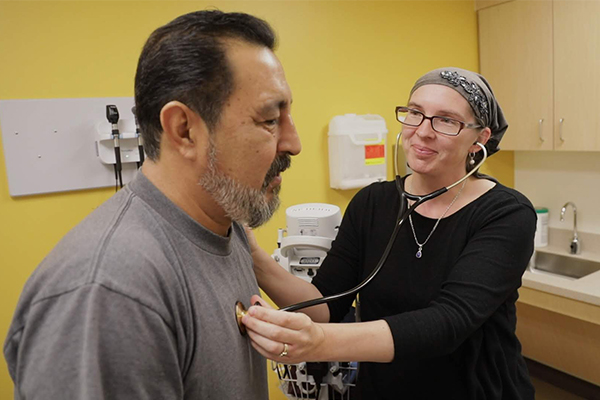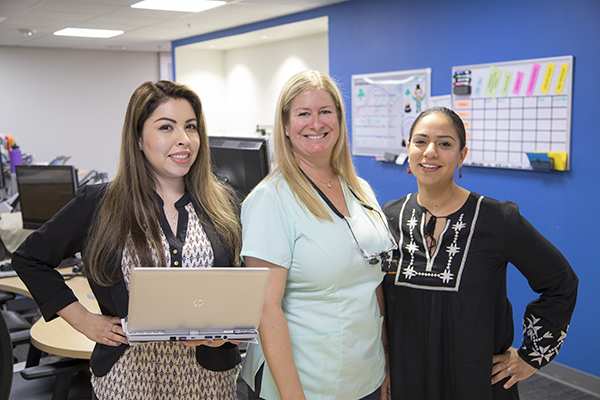October 21, 2016 | Clinics / Staff Stories
By: Krystal Romney Lundell, RD
Mountain Park Health Center is known for its unique approach to healthcare, providing our patients with many different options so they receive the best care possible. Physical and mental health both contribute to a person’s well-being, so we ensure our patients have access to behavioral health consultants, clinical pharmacists and registered dietitians during their appointments with our doctors and nurse practitioners. One area where this approach is useful is with pregnant women who have been diagnosed with gestational diabetes.
Gestational diabetes is a condition that affects pregnant women and occurs when the placenta produces a hormone that causes a woman to be insulin resistant. Diabetes sets in for the duration of the pregnancy. Practitioners routinely recommend a glucose screening test between 24 and 28 weeks of pregnancy to check for gestational diabetes. Once the baby is born, the woman generally goes back to her pre-pregnancy state.

We treat this condition with help from our Integrated Health Team-giving our patients every tool available to ensure that their baby is born healthy. During the initial visit after being diagnosed, our patients meet with our on-site Registered Dietitian and Behavioral Health Consultant. The Dietitian goes over a specific eating plan to ensure the patient’s blood sugars are under control during the rest of her pregnancy. Our Behavioral Health Consultant discusses stress management strategies that help keep blood sugars under control by lowering the patient’s response to stress.

The key to maintaining a healthy pregnancy, after a gestational diabetes diagnosis, is a healthy diet that is moderately low in carbohydrates and high in protein and vegetables. Eliminating simple carbohydrates like sugar, soda and junk food is also necessary to keep blood sugar steady.
In order to help monitor a patient’s blood sugar, we require them to log their daily blood sugar levels. Patients check their blood sugar first thing in the morning and two hours after each meal. These readings help our providers determine the risks the baby could be facing. Regular monitoring also gives the mother a good idea of how she is managing her carbohydrate intake. If blood sugars come back high after a meal, she’ll know that for her next meal, she needs to lower her intake of carbohydrates or choose healthier versions.
From the first diagnosis to delivery of the baby, patients continue to meet with our OB/GYN and Dietitian on a weekly basis. The frequency of visits allow everyone involved in the care to ensure every precaution is taken to aid in a healthy pregnancy and delivery.
If you’re pregnant or plan on becoming pregnant and need a doctor, call us to schedule an appointment at (602) 243-7277.



